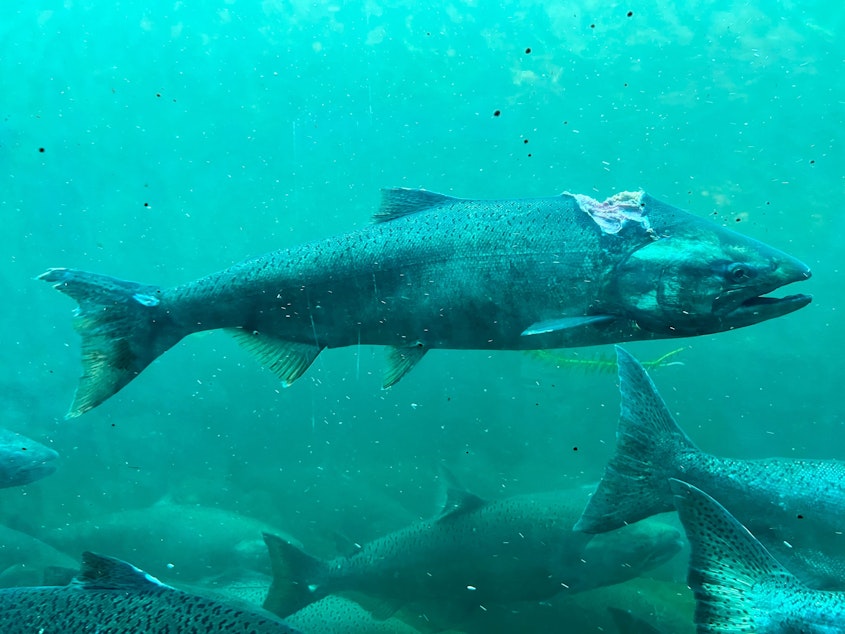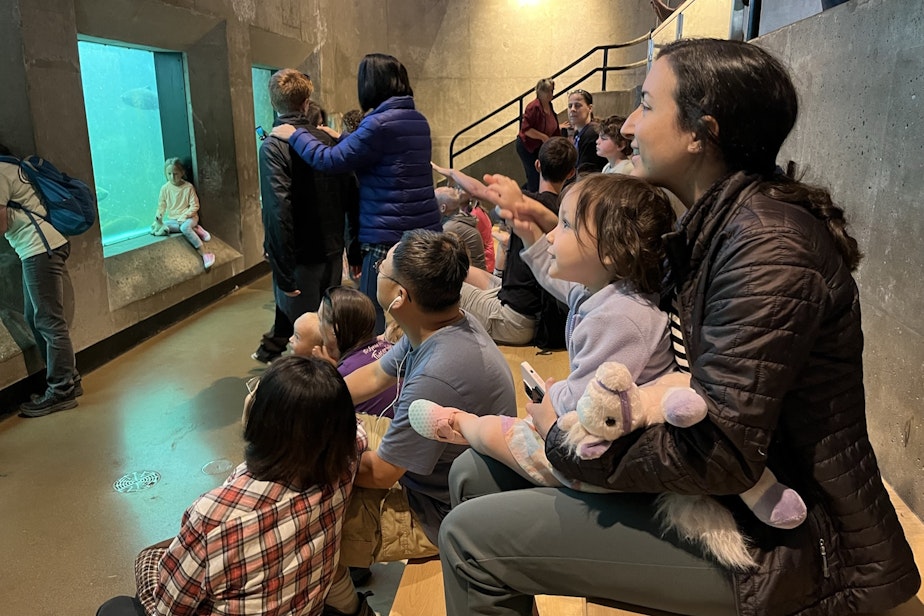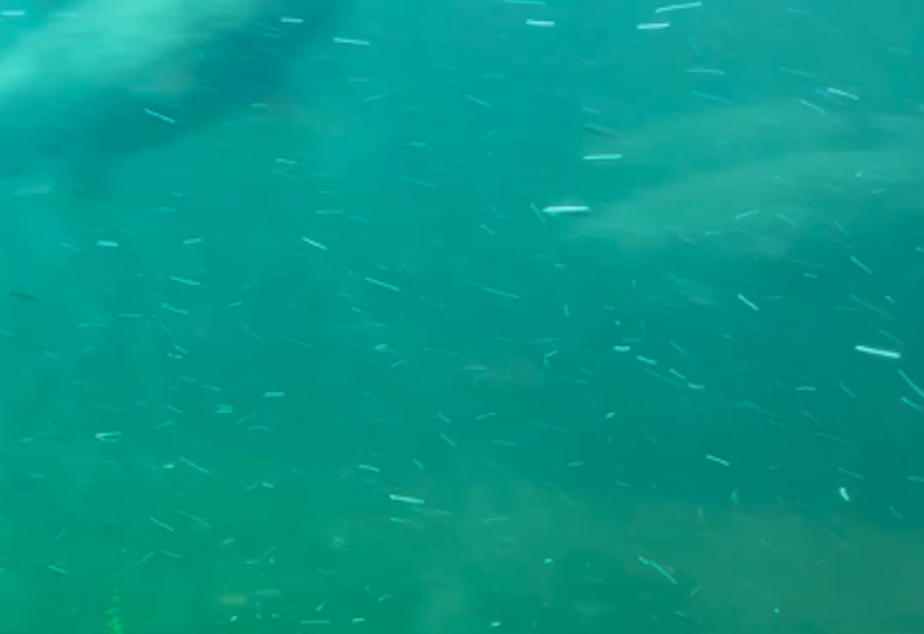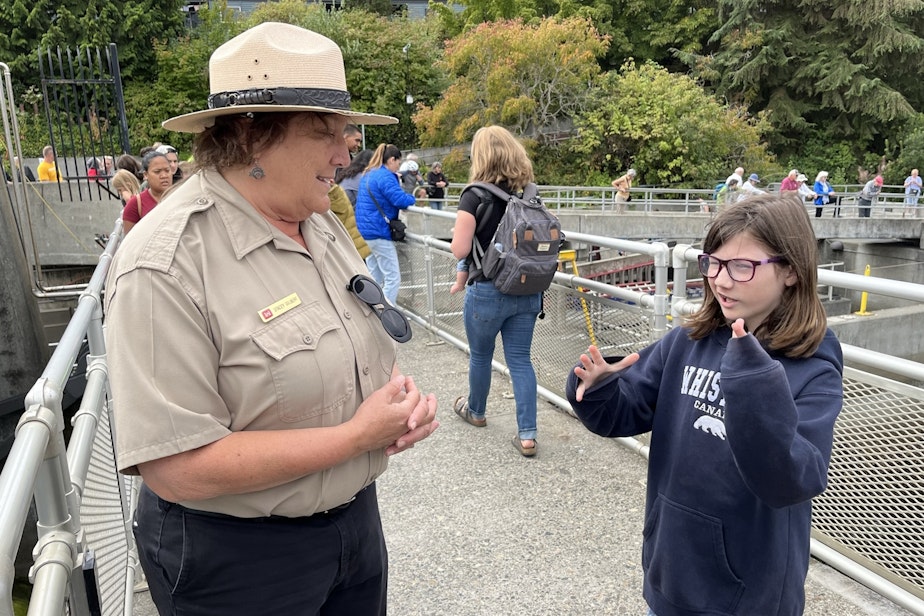The little Chinook that could: Salmon surviving seal-sized bite mesmerizes fish ladder visitors

At the Ballard Locks this weekend, there’s a strong Chinook salmon run passing through — one of the strongest runs in the last decade.
The number of fish is impressive, but what really caught the attention of visitors on Friday was one grisly-looking salmon in particular.
Fish are cool to look at. But there's nothing like a whiff of mortality to juice people up a the Ballard Locks fish ladder.
Seals seem to prefer smaller Sockeye salmon. But that doesn't stop them from trying their luck with a much larger Chinook salmon.
"There is one with a bite in its head!" Liam Beckett explains excitedly.
Sponsored
The fish ladder at Ballard Locks has a large viewing area, with benches to sit on and peacefully ponder the cycle of life. But wait — what's that over there?

"There was a fish that had a chunk out of its head, and it’s just amazing to me how remarkable and resilient they are, that they just continue to go. It’s astonishing," says Bonnie Mandell-Rice, who brought her young granddaughter.
People ask each other: "Did you see the fish with the bite out of its back?"
"Yes, that was brutal, huh?" asks Minette Yu. "I felt like, you know, I want to cheer that fish up. Like, please continue the journey. It’s hard."
Sponsored
The tough odds make us empathize.

 12 secs
Visitors to the Ballard Locks in Seattle react to a tenacious Chinook salmon with a huge seal bite on its back om August 18, 2023.
12 secs
Visitors to the Ballard Locks in Seattle react to a tenacious Chinook salmon with a huge seal bite on its back om August 18, 2023.
"It's a really dangerous journey," reflects Chenkai Liu. "[I've been] reading about how it's such a numbers game. For thousands of eggs laid, only a couple make it back. And there are just so many predators along the way."

Sponsored
Outside, Ballard Locks tour guide Stacey Gilbert answers questions about fish all day long. She humors one from this reporter about a certain fish with a bite on its back.
"That happens a lot," she says. "Just because they have a bite doesn’t mean they won’t make it up to the river to spawn. If it’s a powerful fish, and it has enough food in its body, it probably will make it."
It still has a long journey ahead. Climate change has pushed stream temperatures higher than salmon like.
The numbers of Chinook at the Ballard Locks are high this year. Not record-breaking or anything, but stronger than average for the last 10 years.
State wildlife biologist Aaron Bosworth says the Chinook run is higher for several reasons, including good ocean conditions, a hatchery program that's been consistently productive for several years, and help from the Muckleshoot Tribe reducing invasive predators like yellow perch and bass that eat juvenile salmon.
Sponsored
"This is all like, breathtaking to me," says Isabella Gamboa, who's visiting from Dallas, as the salmon swim quietly by in the windows before her.
Her friend Daniel Varela brought her here. He says it’s natural encounters like this one at the locks that made him fall in love with this place, after moving here from Dallas.
“It makes me want to live here a lot longer than I ever thought I would,” he says.
So when he was in Dallas, did he see similar efforts to conserve aquatic species?
"Honestly, I don’t even know if they have aquatic species over there. Because it’s all manmade lakes – you really don’t see a lot of wildlife like this.”




